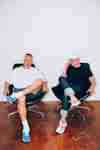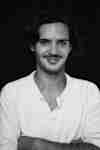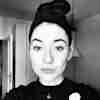Feeling So Real – How Junction2 Organizers Create Community In The Digital Space
In one fell swoop, the pandemic stripped music lovers, industry professionals and artists of that sense of community festivals have the singular power to afford. Thankfully, Junction 2 has resolved to bring a bit of those simple joys back.
The team behind London’s annual techno and electronic festival was heading into what would’ve been its sixth and most voraciously-attended year when COVID catastrophe struck. Rather than throw a year’s worth of efforts to the wayside, they’ll come to viewers with Connections: the J2 team’s strictly digital and highly interactive new production this Saturday, Jan. 9.


In place of Junction 2’s lauded, paradoxical homefront at Boston Manor Park—where lush streams and woodlands wind beneath a barebones highway overpass—Connections will stream live from three watershed cities in electronic music’s prolific history: London, Detroit, and Berlin.
Created by ravers for ravers, the event offers a bit of happenstance that’s missing in a lot of music streaming events. Connections allows attendees to anonymously communicate with one another throughout the performances. It also resurrects a bit of the tactile with its “black box service,” a menagerie of drinks, mixers and recipes which festivalgoers can purchase ahead of the show and enjoy on the day of the event.
With virtual reality, gaming and a hell of a techno selection, Connections is poised to hold electronic aficionados over through this flummoxing festival drought. Festival Advisor sat down with Junction 2/Connections co-founders Will Harold and Paul Jack to hear what it took to shift gears and plan the digital event as well as their plans for the future, and how they’ll create a sense of occasion online.
You can register for the Junction2 Connections virtual event on their website.
Give a bit of background on the festival’s origins for our readers
Harold: Junction 2 is a techno and electronic music festival born out of our passion for music. It’s grown from a 10,000-capacity, one-day event, and it’s in a pretty unique location under a large motorway bridge. The stage is an unusual space. It’s a mixture of this stark, industrial concrete bridge that runs through this really beautiful park. Underneath, you’ve got meandering rivers, streams and woodlands. I think there’s a real contrast that’s made the stageiconic.
It would’ve been our fifth year. It’s grown to 30,000 people, and hopefully one of the most exciting electronic music lineups in [England] or Europe. It’s finally found a place on the world stage—one that people want to play and come to.
Jack: It’s growing rapidly. It was 10,000 people when it launched, and in the course of four years, it’s gone to 25,000, expanding from one to two days in its third year. This year was the most successful year we were going to have. The talent was excited, a slightly different audience was introduced to the event by broadening the musical offering. We were heading for a sellout. We’re understandably disappointed for it not to happen. It’s something we really looked forward to all year round—being a culmination of all the work we put in over the last two years.
It still feels very positive. The digital event was born out of the event not taking place. When we did [the digital event] in July the first time around, the success of that followed up with a winter virtual edition, which is the one we’re leading into this weekend.
Growing that quickly is a fantastic position to be in, which I’m sure comes with its own set of challenges. What’s unique to throwing a strictly-digital event?
Jack: Easy: We’d never done it before. It’s something me and Will were discussing. Not having something to mark the occasion seemed kinda crazy.
We had to learn from scratch how to do it. It’s one thing putting on livestream of artists. It’s another thing to actually engineer … and recreate a feeling of energy, experience, exploration - and curation of artists. Not having one channel but multiple stages. That’s why people go to events. It was difficult. Our way of doing it refined as we learned.
We were expecting reasonable numbers, but the show on the day delivered over 3.2 million views. [It] was gobsmacking to see that many people tuning into something. A vast number came from the US, I think about 26 percent of the audience. It was 204 countries from different time zones. The chatter online was amazing to see, people logging online at 5 o’clock in the morning in their country. Because it was presented as live, it was very important for us to run it at fixed times rather than separate times for different areas. It is one event, rather than a re-stream in different countries.
It was a real learning experience, and all those learnings we’ve taken away to do this again. One of the things we realized is the digital landscape is incredibly throwaway. There’s so much stuff out there, people just putting on left, right and center: A. Because they want to, B. Because they feel the need to. A lot of it is clogging up airwaves. You need to give things a purpose, which is why we’ve done less and focused on why we’re doing it. We came up with a concept - techno - and we’re gonna root it in key cities that represent our artists.
Harold: Underground electronic music has always had two things: It’s triumphed in the face of adversity. There’s always been a challenge, if you look back to the UK early rave era, it was born out of political oppression. If you look further back, into the black, gay and hispanic communities, there’s always been something about coming together and celebrating; having a good time despite what was going on. There’s a certain element of that with us as well with the Covid crisis. We really had a sense that the show must go on.
That’s where we come to the other thing; that DIY spirit and mentality. We’ve taken those two things and joined them. We’ve taken this virtual world - a very deliberately simple, stripped back sort of experience that we’ve built in-house with our own team. Instead of a slew of web developers, we’ve done it ourselves. [Connections] feels very genuine, and very much like Junction 2. We didn’t want it to be shiny avatars and photorealistic. It’s much more about the music. The space we’ve created allows the visuals and the music to take center stage. That’s really representative of J2. It’s a community of people coming together to celebrate and enjoy music.
Excellently put. This niche of music is made up of some incredibly resilient individuals. Can you expand on the three cities you picked as locations?
Jack: It’s very much based around where the artists, the music and the scene is rooted. It’s where its heritage and story come from. It wasn’t that we discount other cities, territories, and countries. Italy’s got a strong scene. Spain’s got a strong scene - but for us, it was the core beginnings of the music we support. London is an obvious one. We’d be crazy not to represent our own city. Lots of the harder-edged, darker music comes from Berlin and Germany. Then you’ve got Detroit, obviously a huge heritage of techno and house music.
How will the VR component affect the experience?
Jack: VR is a strong way to describe it. The brief we gave our team was, ‘Let’s do something a bit like Tron.’ The music is stripped back, darker. It’s not flashy and shiny. On the budget, we were limited to what we could create. It’s a desktop environment that allows you to navigate and explore, giving you the feeling of space and movement as if you were at an event. It gives a feeling of busyness.
We added a running chatroom down the side, which is open to anybody saying anything. It runs in real time. We didn’t know how it would perform, but it was one of the standout elements. It really replicated the random conversations. Because it’s anonymous and easy, people were just typing in “Where’s the toilet. Where’s this. Let’s meet here. Have you done this?” Just funny things running in a stream, like you would at a club show. The constant posts and the movement of it happening, whether you were by yourself or not, gave you a feeling that you were part of something with a lot of people. When they said they were from different countries, it highlighted that it wasn’t just something they were watching on a screen.
That’s something I miss most about live events, bumping into someone and having a conversation. It’s so lost on a lot of digital events.
Jack: I agree, and I think when these events incorporate Zoom, a lot of people don’t want to be seen. They’re in their houses. It’s a window into their privacy and reality, but with it being non-visual, it’s easy to engage, talk, respond, appear and disappear. [It} created a safe and easy environment for people to let loose.
There’s a gaming component to the festival as well, right?
Jack: We’re trying to explore and understand where audiences come from. On one side, there is a replacement for events. On the other side, there’s a whole landscape of people who already exist in a digital world. That is their landscape, and they’re very used to doing it. Take away age restrictions, and suddenly it’s accessible to everybody. A big part of that is gaming. The gaming audience is bigger than the music audience by manyfold. We were trying to find a way that would allow us to interact and engage with a gaming audience; present it or introduce it to them in an authentic way. If we were looking to do something that had a gamified experience but had no real gaming to it, then you’re just paying lip service. It factors into what we see as being a long-term strategy. We quickly [realized] that whether events are happening or not, there’s a landscape of people who would go to things in a digital capacity. It allows us to cross two different worlds.
How can people tune in?
Jack: Facebook. YouTube. Twitch is a massive channel for it. They’re realistically the main drivers for the audiences.
Will: The website is the best leap-off point in lots of ways.
Jack: If they go to the website, there’s something called a hub which allows all the stages presented at the same time. People can just click and focus on independent stages, or they can watch all the feeds at the same go.
Will: For anyone who doesn’t have it, the URL is junction2.london.
You mentioned that the livestream space is really saturated. What do you do right to generate so much buzz?
Jack: I don’t feel it’s about what we’re doing right as opposed to other people. I think it’s about owning and being confident in what you have and how it’s presented. Trying to make it look different, feel different, and being able to find a purpose and a story. No matter what it is you’re doing, you have to market it, sell it and have people engage with it. It’s a lot easier to market a physical ticket than it is to market an audience that’s either at home or not. If they are, and it’s convenient, [maybe] they’ll watch. The only way to do that is to have a story. A lot of what we focus on is putting together an event concept that we know we can tell over six to 12 weeks; what’s the point of it? Give it a purpose, a reason why people should attend.
Will: Even though we’re a bit older, we’re all ravers, and we all like to party. We spent a lot of time thinking about what other ingredients go in a great event. It’s the extra little touches. It’s the world we’ve created. These black boxes are really well-branded. When it arrives a few days before the show, it’s got alcohol, mixes and recipes for the various cocktails. We’ve tried to blur the lines and connect the virtual world to the real world, to create a sense of occasion and think about what we as electronic music fans would want. You can go on YouTube, and there’s a million different DJ sets you can stream. It’s unpacking what’s important; what would I want to do at home with my friends. Creating that atmosphere is a big part of what we’ve done.
Jack: You plan for weeks: what you’re gonna wear, where you’re gonna meet, where you’re gonna have your drinks, what you’re gonna do. Being at home, what are you planning? When shall I go downstairs and turn on my laptop? When shall I put my headphones on?
Will: Shall I plug it in, or shall I go crazy and just run out the battery?
Jack: Shall I get out of my pajamas or not?
Will: So much of what we do is about building up energy. The event is the release or the coming together of all that energy. It’s building excitement. It’s building anticipation. It’s getting together with your friends and enjoying music.
This interview was edited for length and clarity.
You can register for the Junction2 Connections virtual event on their website.
























